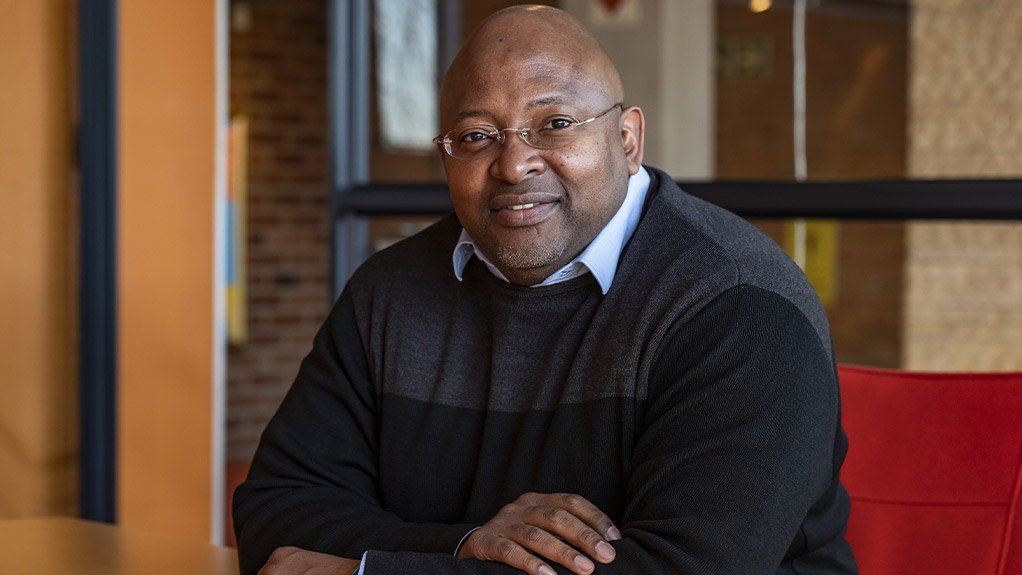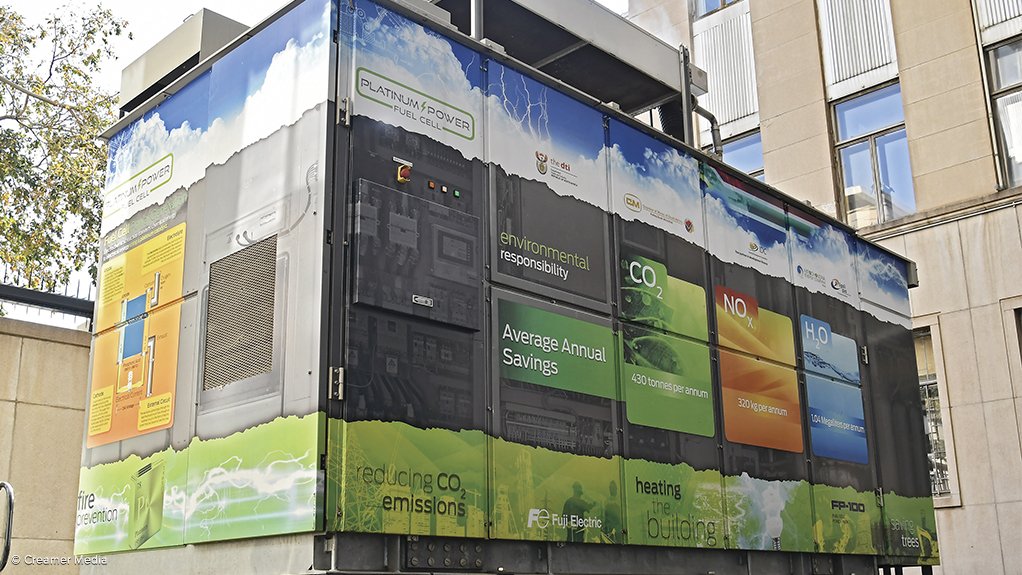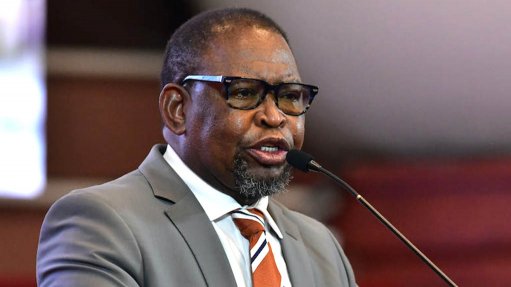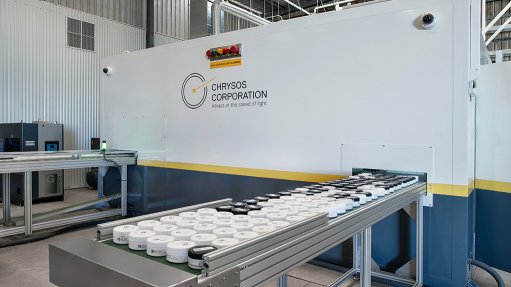Hydrogen economy top of mind for Minerals Council



TEBELLO CHABANA The Minerals Council is engaged in a roadmap process, led by government and industry, to develop South Africa’s hydrogen economy
Photo by Creamer Media
POWER SHIFT Significant potential can be unlocked for the South African economy if, by 2050, 30% to 50% of the world’s electricity and transport were provided by clean hydrogen-powered platinum fuel cells
Photo by Creamer Media
Mining industry body Minerals Council South Africa believes that the country’s hydrogen economy presents significant opportunities, specifically from an environmental, economic and investment, as well as a research and development, perspective.
The Minerals Council hopes that this will be adequately addressed at this year’s free-to- attend Investing in African Mining Indaba virtual conference on February 2 and 3.
“It is important that a policy is developed and that this is clear, workable and promotes investment. We are currently engaged in a roadmap process, led by government and industry,” Minerals Council public affairs and transformation senior executive Tebello Chabana tells Mining Weekly.
He hopes that Mineral Resources and Energy Minister Gwede Mantashe will refer to the topic during his keynote address at the Mining Indaba or in other engagements during the event.
The Minerals Council believes that significant potential can be unlocked for the mining industry and South African economy if, by 2050, 30% to 50% of the world’s electricity and transport were provided by clean hydrogen- powered platinum fuel cells.
Further benefit could be had if the country were to be the dominant source of intellectual property for clean-hydrogen platinum fuel cell-powered heavy mining vehicles, which would be cleaner and safer.
More potential could be also be unlocked if platinum’s investible mark grew by 20 times over the next decade. Chabana believes this could be feasible, given the precious metal’s scarcity and uniqueness.
As the world’s foremost platinum supplier, South Africa would benefit greatly if local stakeholders collaborated on platinum market development by cofunding jewellery and investment creation, as well as research, development and investment into new uses for platinum.
In addition, new discoveries should be encouraged in fields, such as biotechnology, nano- technology, aerospace and energy, to establish further uses for platinum-group metals.
Further, Chabana suggests that South African stakeholders should collaborate on a new “big five platinum coin”, which should include a zero rating for value-added tax by the National Treasury.
“We would like to see these issues receiving the necessary attention and support from all stakeholders,” he says.
Other Issues
Based on its members’ priorities and on engagements with key stakeholders, the Minerals Council would like the issue of women in mining to be addressed at the event.
Minerals Council statistics indicate that the number of women working in the local mining industry has increased from about 11 400 in 2002 to 56 691 in 2019, representing about 12% of the country’s total mining labour force of 454 861 people.
Concerns still abound regarding women’s safety in terms of sexual harassment and sexual violence – particularly in underground mining scenarios. In addition, reasonable access to appropriate ablution facilities on site, appropriately designed personal protective equipment and the positive impact of modernisation on women’s ability to engage in mining work, all require considerable discussion and attention.
Another issue of concern is the need to encourage a vibrant junior mining sector, which includes making South Africa’s exploration, and the licensing system, much more accessible.
“The Minerals Council has been engaging with the Department of Mineral Resources and Energy (DMRE), as well as with Mantashe, on the development of an exploration policy, and discussions have been very constructive,” Chabana says.
He adds that, although there have been similar discussions surrounding illegal mining, the Minerals Council has not yet seen any draft policy positions from the DMRE on the subject.
“We would certainly like to see issues relating to creating an environment conducive to exploration and junior mining addressed at the Mining Indaba,” Chabana states.
The Minerals Council also hopes that health and safety in mining, with specific reference to Covid-19; modernisation and the future of mining; community engagement and human rights; the role of mining in economic development; and how governments can best facilitate a healthy mining industry, will receive attention at the event.
Chabana notes that the Mining Indaba is a key yearly event in the mining events calendar, and it provides an important opportunity for the Minerals Council and its members to engage in important debates regarding to the industry’s investment case.
“As has been the case in the past, the Minerals Council will proactively support the event, and, will identify and participate in topical discussions identified as critical.”
With this year’s Mining Indaba being entirely virtual, many are wondering how this new format will pan out and whether it will have as big an impact on the industry as when it was held in person in years prior.
“The Covid-19 pandemic has required all industries to adapt and innovate to survive. Several key mining conferences have taken a similar approach, and these have been very successful,” Chabana says, adding that an online platform would likely make the event more accessible for more people.
“We expect that discussions will continue to be topical, robust and informative,” he concludes.
Comments
Press Office
Announcements
What's On
Subscribe to improve your user experience...
Option 1 (equivalent of R125 a month):
Receive a weekly copy of Creamer Media's Engineering News & Mining Weekly magazine
(print copy for those in South Africa and e-magazine for those outside of South Africa)
Receive daily email newsletters
Access to full search results
Access archive of magazine back copies
Access to Projects in Progress
Access to ONE Research Report of your choice in PDF format
Option 2 (equivalent of R375 a month):
All benefits from Option 1
PLUS
Access to Creamer Media's Research Channel Africa for ALL Research Reports, in PDF format, on various industrial and mining sectors
including Electricity; Water; Energy Transition; Hydrogen; Roads, Rail and Ports; Coal; Gold; Platinum; Battery Metals; etc.
Already a subscriber?
Forgotten your password?
Receive weekly copy of Creamer Media's Engineering News & Mining Weekly magazine (print copy for those in South Africa and e-magazine for those outside of South Africa)
➕
Recieve daily email newsletters
➕
Access to full search results
➕
Access archive of magazine back copies
➕
Access to Projects in Progress
➕
Access to ONE Research Report of your choice in PDF format
RESEARCH CHANNEL AFRICA
R4500 (equivalent of R375 a month)
SUBSCRIBEAll benefits from Option 1
➕
Access to Creamer Media's Research Channel Africa for ALL Research Reports on various industrial and mining sectors, in PDF format, including on:
Electricity
➕
Water
➕
Energy Transition
➕
Hydrogen
➕
Roads, Rail and Ports
➕
Coal
➕
Gold
➕
Platinum
➕
Battery Metals
➕
etc.
Receive all benefits from Option 1 or Option 2 delivered to numerous people at your company
➕
Multiple User names and Passwords for simultaneous log-ins
➕
Intranet integration access to all in your organisation




















